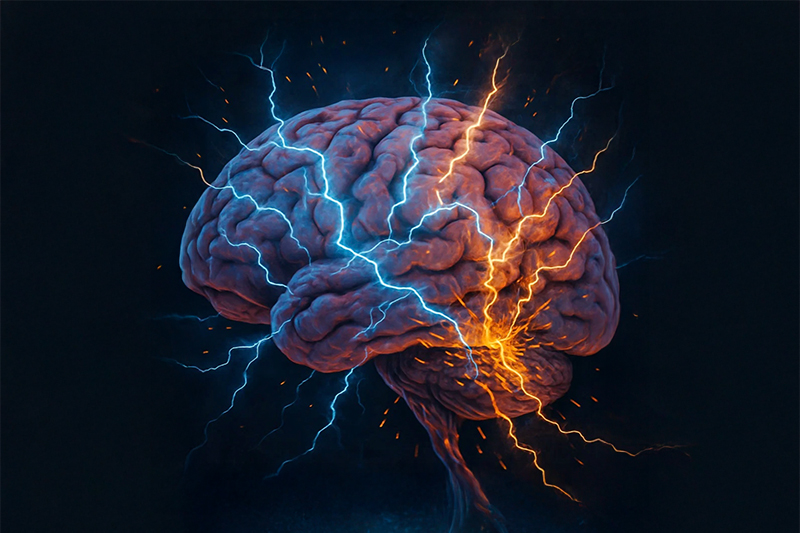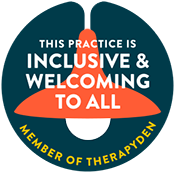The Neuroscience of Narcissism: Why Empathy Gets Lost in Translation

By Brenda Stephens, Licensed Professional Clinical Counselor
When survivors of narcissistic abuse ask, “Did they ever really care about me?” the answer lies deeper than personality traits or bad behavior. It lives in the wiring of the brain itself. Neuroscience research shows that empathy doesn’t function the same way in narcissists as it does for most people. And while survivors often internalize blame-believing they weren’t lovable enough, patient enough, or good enough, the truth is far different.
Two Types of Empathy
Empathy isn’t just one thing. It comes in two forms:
-
Emotional (or feeling) empathy: When you sense someone else’s emotions so strongly that you feel them in your own body. Your friend cries, and your throat tightens with tears, too.
-
Cognitive (or thinking) empathy: When you understand what someone must be going through, even if you don’t feel it with them. You can picture their pain, even if you don’t embody it.
Research confirms this distinction matters. A 2014 review on Empathy in Narcissistic Personality Disorder found that across psychiatric disorders, deficient emotional empathy is a key feature of problematic empathic functioning (PMC). In narcissism, the emotional side is weak, but the cognitive side often remains intact, giving narcissists the ability to recognize feelings without truly sharing them.
The Brain Wiring Problem
Here’s what happens neurologically:
-
In most people, the brain receives a “ping” when someone else is in distress. Circuits switch focus from self to other, allowing compassion and care to flow outward.
-
In narcissists, that “ping” is faint or missing. Their brains loop back to self-focus: How does this affect me? Why is this making me uncomfortable?
-
The neural “switch” that should flip from me to you often fails. Instead of offering comfort, they center their own perspective.
This pattern isn’t unique to narcissism. Research on the “Dark Triad” narcissism, psychopathy, and Machiavellianism shows that psychopathy demonstrates the strongest deficits in emotional empathy, followed by narcissism, then Machiavellianism (ScienceDirect). Narcissists fall in the middle of this spectrum: not always incapable of empathy, but often unwilling to engage it when it would benefit others rather than themselves.
Is This an Excuse?
Absolutely not. Brain differences don’t erase responsibility. Narcissists are not helpless victims of faulty wiring. They choose again and again to ignore opportunities for connection and compassion. And in making those choices, they strengthen the very pathways that keep them disconnected.
The Empathy in NPD review highlights that while cognitive empathy is often preserved, emotional empathy is consistently impaired (PMC). Survivors experience this as a partner who can “talk the talk” of care while withholding true compassion. That gap is what makes the abuse cycle so confusing and destabilizing.
Can the Brain Change?
Neuroplasticity, the brain’s ability to rewire itself, offers theoretical hope. In cases of brain injury, addiction recovery, or disciplined retraining, neural circuits can regrow and adapt. But here’s the catch: neuroplasticity requires intention, effort, and genuine motivation.
Most narcissists don’t seek therapy, and when they do, they rarely stay. Therapy often makes them more skilled at wielding cognitive empathy for manipulation rather than cultivating genuine emotional connection. A recent meta-analysis underscores why survivors shouldn’t hang their hope on change: the relationship between narcissism and emotional empathy is inconsistent across studies, sometimes weak, sometimes moderate, suggesting that the picture is messy at best (Frontiers in Psychology).
So while the brain can change, survivors should not pin their healing on waiting for it. Change in narcissists is possible in theory but rare in practice.
What This Means for Survivors
If you’ve been abused by a narcissist, here are the takeaways:
-
It wasn’t about your worth. Their inability to feel with you is about their wiring and choices, not your lovability.
-
They may appear empathetic when it benefits them. This is thinking empathy used strategically, not true compassion.
-
Don’t carry the blame. The absence of comfort, concern, or accountability was not because you weren’t enough; it was because they chose themselves every time.
-
Your healing is possible. When you understand the neuroscience, you stop chasing answers in their behavior and start reclaiming your own sense of self.
The Bottom Line
The brain of a narcissist is not broken, but biased. It resists emotional connection. Survivors must remember: you did not fail to unlock their empathy. They reinforced their self-focus over and over, at the cost of human connection.
Your healing comes not from waiting for them to change but from recognizing that their wiring is theirs, not yours. With support, therapy, and self-compassion, you can stop blaming yourself and begin the work of repair.
Ready to Take the Next Step in Your Healing?
If this article resonated with you, you don’t have to navigate the aftermath of narcissistic abuse alone. Here are ways to connect, learn, and heal with us:
-
Listen to the podcast: Dive deeper into these conversations on Two Queens and a Joker: My Narcissist’s Ex and Me. Every episode combines lived experience with professional insight to help you feel less alone.
-
Join a group: Healing happens in safe, validating spaces. Explore our specialized support groups for survivors of narcissistic abuse (SoNA) https://narctrauma.com/s-o-n-a-support-group/, and ask us about other supports, including programs for those going through divorce and recovery after narcissistic abuse.
-
Work with a specialist: At NarcTrauma.com, I work exclusively with survivors of narcissistic abuse and have personally trained our therapists in working with survivors of narcissistic abuse. Whether through individual therapy, group programs, or guided resources, you’ll find tools to rebuild your sense of safety, self-worth, and identity.
You deserve to heal, reclaim your power, and build a future where connection is safe and real.
We specialize in helping survivors untangle the patterns of narcissistic abuse and recover their sense of self. Learn more at www.narctrauma.com.
Follow for support and resources:
Facebook: Narcissistic Abuse Recovery Center
TikTok: @narctraumarecovery
Instagram (Podcast): @2queensandajoker
Instagram (Recovery): @narcrecoverycenter
Ritter, K., Dziobek, I., Preißler, S., Rüter, A., Vater, A., Fydrich, T., … & Roepke, S. (2011). Empathy in narcissistic personality disorder: From clinical and empirical perspectives. Psychiatry Research. PMC link ↩
Wai, M., & Tiliopoulos, N. (2012). The affective and cognitive empathic nature of the Dark Triad of personality. Personality and Individual Differences. ScienceDirect link ↩
Ritter et al., Empathy in NPD. PMC link ↩
Lambe, S., Hamilton-Giachritsis, C., Garner, E., Walker, J., & Bates, G. (2018). The role of narcissism in aggression and violence: A systematic review and meta-analysis. Frontiers in Psychology. Frontiers link ↩






